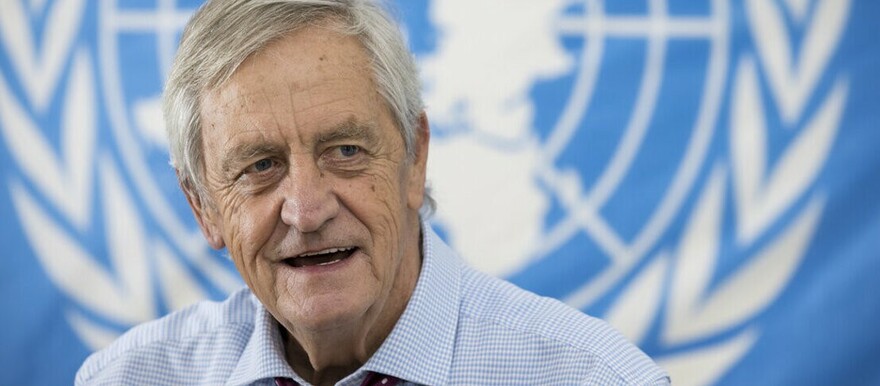The United Nations Mission in South Sudan (UNMISS) on Tuesday revealed plans to build and rehabilitate over 2,000 kilometers of roads, culverts, and other essential infrastructure to help improve security and community well-being, boost economic activity, and support peacebuilding.
Addressing a press conference at the UNMISS base in Juba, Nicholas Haysom, the Special Representative of the Secretary-General and Head of UNMISS, said the Mission plans to repair 2,083 kilometers of roads across the country, including around 500 kilometers in Warrap, 473 kilometers in Western Equatoria, 422 in Jonglei, 400 in Lakes State, 173 in Upper Nile, and 145 kilometers in Eastern Equatoria, among other locations.
“This work will bring many benefits for a wide range of stakeholders, including local authorities, law enforcement, traders, business owners, and communities,” he said. “People will be able to travel safely. Economic activity will increase. Humanitarian aid will reach those in need and communities will connect more easily with each other to resolve disputes and build peace.”
The UNMISS chief said infrastructure projects are the responsibility of the government but that UNMISS recognizes the importance of supporting the work, in coordination with national and state authorities as part of its mandate to help protect civilians and build durable peace.
He said in terms of road projects, the Mission will provide equipment, technical expertise, and labor while the government and local authorities provide the necessary access to carry out the work and to appropriate raw materials.
Haysom said UNMISS’ engineering work to maintain and reinforce more than 80 kilometers of dykes and berms in Bentiu is also protecting 300,000 people surrounded by 5,400 square kilometers of stagnant flood waters, a joint effort with local authorities, humanitarian partners, and communities.
He added that the Mission continues to support the Transitional Security Arrangements and peace conferences, particularly by providing technical advice, transporting stakeholders, and facilitating dialogue.
“We are also strengthening the justice system to prevent criminality and improve accountability by constructing 23 facilities, including courts, prisons, police stations and training centers,” he said. “In addition, we are taking justice to the people in a unique South Sudanese system of mobile courts, including the first-ever court of this kind which is currently underway in Koch.”
Haysom underscored that the initiatives demonstrate the UN`s deep and ongoing commitment to supporting the people and leaders of South Sudan across the full spectrum of politics and peacebuilding as well as improving security and the living experience of the communities that they serve.




